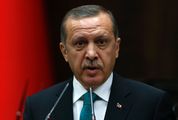ANYONE — even heads of states — indicted by the International Criminal Court (ICC) risks arrest when visiting SA.
The Supreme Court of Appeal on Tuesday confirmed that the government had acted unlawfully when it failed to detain Sudanese president Omar al-Bashir when he visited SA last year.
Unless successfully appealed, it means that SA is obliged to arrest him or anyone else who has been indicted for international crimes.
Mr Bashir is wanted by the ICC for war crimes, crimes against humanity and genocide.
The judgment may also escalate calls for a repeal of the Implementation of the Rome Statute of the International Criminal Court Act, the legislation that domesticates the Rome Statute, the law that established the ICC. The reasoning of the judgment suggests that, were it not for the Implementation Act, Mr Bashir would have had immunity from arrest.
In June last year, SA was scandalised when Mr Bashir, who came to attend an African Union (AU) summit, left the country despite a court order that he not do so.
His departure led to a stern rebuke of the government by judges of the High Court in Pretoria.
On Tuesday appeal court judge Malcolm Wallis, on behalf of a unanimous bench, also had strong words for the government. He said the explanation that Mr Bashir’s passport was not among those shown to Waterkloof air base officials, was "simply risible".
"Senior officials representing government must have been aware of President al-Bashir’s movements," he said.
Justice Wallis rejected the government’s argument that Mr Bashir, as a sitting head of state, enjoyed immunity from arrest.
International customary law provided for immunity for a sitting head of state, and there was, as yet, no exception for those accused of international crimes. But once SA domesticated the Rome Statute, it did so on the basis that "all forms of immunity" would not prevent the prosecution of international crimes. Nor would immunity prevent SA from co-operating with the ICC by arresting and surrendering persons charged with international crimes, he said.
He said he accepted that in doing so, SA was "taking a step many other nations have not yet taken".
"If that puts this country in the vanguard of attempts to prevent international crimes … that seems to me a matter for national pride rather than concern," said Justice Wallis.
The judge noted that the government’s argument before the Supreme Court of Appeal was different to what it had said in the High Court when the Southern Africa Litigation Centre asked the court to declare that SA had a duty to arrest Mr Bashir.
In the High Court, affidavits showed that the government thought it could allow Mr Bashir in for the AU summit as the event was governed by a hosting agreement.
The government then changed its argument, saying Mr Bashir was a sitting head of state and therefore had immunity.
It was "perhaps a pity" that the government chose to pursue a new argument, "thereby possibly giving the impression that our commitment as a nation to the Rome Statute was in question," Justice Wallis said.
He was also scathing of the government’s conduct in the High Court, when it first assured the court that Mr Bashir was still in the country and then later said he had left.
The government’s representatives had misled the court and that was "disgraceful conduct", he said.

Omar al-Bashir. Picture: REUTERS/SIPHIWE SIBEKO
ANYONE — even heads of states — indicted by the International Criminal Court (ICC) risks arrest when visiting SA.
The Supreme Court of Appeal on Tuesday confirmed that the government had acted unlawfully when it failed to detain Sudanese president Omar al-Bashir when he visited SA last year.
Unless successfully appealed, it means that SA is obliged to arrest him or anyone else who has been indicted for international crimes.
Mr Bashir is wanted by the ICC for war crimes, crimes against humanity and genocide.
The judgment may also escalate calls for a repeal of the Implementation of the Rome Statute of the International Criminal Court Act, the legislation that domesticates the Rome Statute, the law that established the ICC. The reasoning of the judgment suggests that, were it not for the Implementation Act, Mr Bashir would have had immunity from arrest.
In June last year, SA was scandalised when Mr Bashir, who came to attend an African Union (AU) summit, left the country despite a court order that he not do so.
His departure led to a stern rebuke of the government by judges of the High Court in Pretoria.
On Tuesday appeal court judge Malcolm Wallis, on behalf of a unanimous bench, also had strong words for the government. He said the explanation that Mr Bashir’s passport was not among those shown to Waterkloof air base officials, was "simply risible".
"Senior officials representing government must have been aware of President al-Bashir’s movements," he said.
Justice Wallis rejected the government’s argument that Mr Bashir, as a sitting head of state, enjoyed immunity from arrest.
International customary law provided for immunity for a sitting head of state, and there was, as yet, no exception for those accused of international crimes. But once SA domesticated the Rome Statute, it did so on the basis that "all forms of immunity" would not prevent the prosecution of international crimes. Nor would immunity prevent SA from co-operating with the ICC by arresting and surrendering persons charged with international crimes, he said.
He said he accepted that in doing so, SA was "taking a step many other nations have not yet taken".
"If that puts this country in the vanguard of attempts to prevent international crimes … that seems to me a matter for national pride rather than concern," said Justice Wallis.
The judge noted that the government’s argument before the Supreme Court of Appeal was different to what it had said in the High Court when the Southern Africa Litigation Centre asked the court to declare that SA had a duty to arrest Mr Bashir.
In the High Court, affidavits showed that the government thought it could allow Mr Bashir in for the AU summit as the event was governed by a hosting agreement.
The government then changed its argument, saying Mr Bashir was a sitting head of state and therefore had immunity.
It was "perhaps a pity" that the government chose to pursue a new argument, "thereby possibly giving the impression that our commitment as a nation to the Rome Statute was in question," Justice Wallis said.
He was also scathing of the government’s conduct in the High Court, when it first assured the court that Mr Bashir was still in the country and then later said he had left.
The government’s representatives had misled the court and that was "disgraceful conduct", he said.





















Change: 1.19%
Change: 1.36%
Change: 2.19%
Change: 1.49%
Change: -0.77%
Data supplied by Profile Data
Change: -0.19%
Change: 0.69%
Change: 1.19%
Change: 0.00%
Change: 0.44%
Data supplied by Profile Data
Change: 0.62%
Change: 0.61%
Change: 0.23%
Change: 0.52%
Change: 0.12%
Data supplied by Profile Data
Change: -0.21%
Change: -1.22%
Change: -0.69%
Change: -0.51%
Change: 0.07%
Data supplied by Profile Data